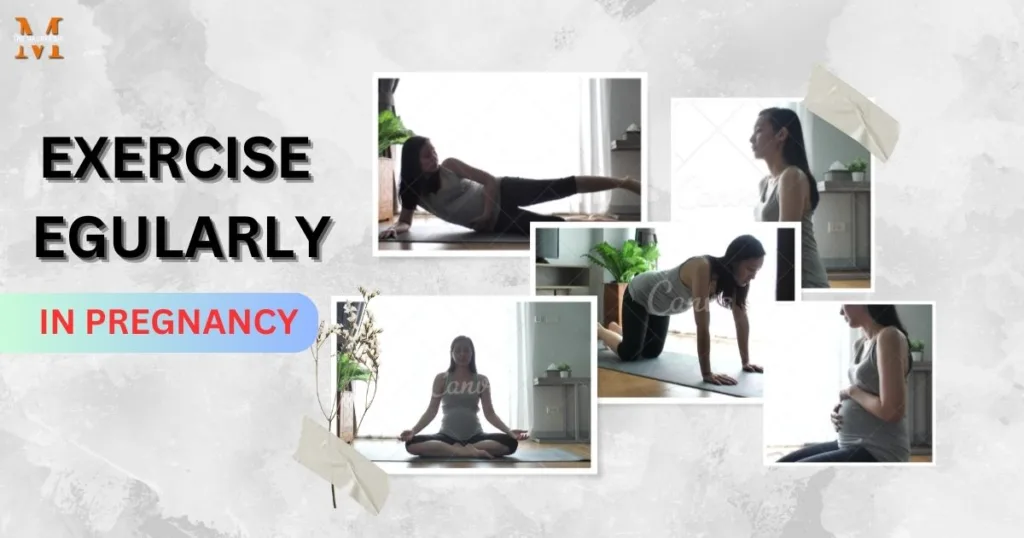For women, becoming pregnant can be both a joyful and stressful time. There are numerous factors to take into account to guarantee a safe and happy pregnancy at this time when the body is undergoing major changes. Here are 15 crucial pregnancy tips items that every expectant woman has to be aware of.
1. Start with a Healthy Diet
These pregnancy tips are very helpful During pregnancy, eating a balanced, healthy diet is crucial. Eat a lot of fruits and vegetables, whole grains, lean protein, and healthy fats as your nutritional goals. Keep as far away from processed and junk food as you can. To prevent birth deformities, it’s also critical to consume folic acid-rich foods like leafy green vegetables and fortified cereals.
2. Stay Hydrated
It’s important to get adequate water while pregnant. It aids in the removal of toxins, the maintenance of optimum amniotic fluid levels, and the prevention of constipation. Aim to consume eight glasses of water or more each day. Other liquids, such as milk and fresh fruit juices, are also acceptable.
3. Take Prenatal Vitamins
The vital nutrients for the developing fetus are provided by specially prepared prenatal vitamins. Folic acid, iron, calcium, and other crucial vitamins and minerals are all present in these vitamins. These vitamins can help to avoid birth abnormalities and encourage healthy growth when taken before and during pregnancy.
4. Get Enough Rest
During pregnancy, getting adequate sleep is crucial. Every night, you should try to get at least 8 hours of sleep. If necessary, take a nap during the day. Before going to bed, stay away from electronics and coffee to get better quality sleep.
5. Exercise Regularly
Regular exercise during pregnancy is healthy, but it’s crucial to exercise carefully. Walking, swimming, and prenatal yoga are examples of low-impact workouts that can assist in increasing circulation, lower stress levels, and preparing the body for labor and delivery.

6. Avoid Smoking Alcohol
Both smoking and drinking alcohol are bad for the growing fetus. Birth defects, early delivery, and low birth weight are all risks they can exacerbate. It is advised to stay away from these substances entirely when pregnant.
7. Limit Caffeine Intake
Caffeine can pass through the placenta and have an impact on the growing fetus. The recommended daily amount of caffeine is 200 milligrams or about one cup of coffee.
8. Manage Stress
Stress management is crucial because pregnancy can be a difficult period. Consider using relaxation methods like pregnant yoga, meditation, or deep breathing. You might discuss further stress management strategies with your healthcare professional.
9. Go for Regular Check-Ups
Monitoring the health of the mother and the growing fetus requires regular prenatal check-ups. Any possible issues can be identified early by your healthcare professional, who can then make the required interventions.
10. Get the Flu Shot
To protect both the pregnant woman and the growing fetus from the virus, getting the flu vaccination is advised. It can lessen the chance of complications from the flu and is both secure and efficient.
11. Practice Good Hygiene
It’s crucial to maintain adequate hygiene during pregnancy to lower the chance of illness. Observe the following advice:
- Wash Your Hands: Wash your hands frequently with soap and water, especially after using the restroom, changing diapers, or blowing your nose. This is especially important before eating or preparing food.
- Avoid Sharing Personal Items: Don’t let anyone else use your towels, washcloths, or cutlery. These things might contain germs or viruses that can make you ill.
- Keep Your Environment Clean: Keep your living and working spaces tidy and sanitary. Use disinfectant wipes to clean surfaces, and stay away from sick individuals.
- Practice Safe Food Handling: Wash all fruits and vegetables before eating, properly cook all meats, and stay away from eating raw or undercooked eggs.
- Wear Comfortable Clothing: To avoid yeast infections, dress comfortably in loose-fitting items made of breathable materials like cotton.
- Practice Safe Sex: To lower the risk of STIs during sexual activity, use condoms.
You can lower your chance of contracting diseases that could harm you and your unborn child by maintaining excellent hygiene. If you have any worries or inquiries concerning your personal hygiene routines while pregnant, talk to your healthcare physician right away.
12. Education Yourself About Labor and Delivery
Learning about labor and delivery as your due date draws near will help you psychologically and emotionally get ready for the event. Observe the following advice:
- Attend Prenatal Classes: You can learn useful information on the phases of labor and delivery, pain-relieving methods, and the function of your support person during the process by taking prenatal classes.
- Read Up: You can gain a better understanding of what to anticipate during labor and delivery and learn about the various alternatives for pain management by reading books or articles about childbirth.
- Create a Birth Plan: You can convey your desires to your healthcare provider and make sure that your requirements are met during labor and delivery by making a birth plan.
- Practice Relaxation Techniques: You can manage the discomfort and tension of labor and delivery by engaging in relaxation practices like deep breathing, meditation, or yoga.
- Talk to Your Healthcare Provider: Do not be reluctant to communicate your worries or concerns to your healthcare practitioner or to ask them about labor and delivery.
It’s crucial to keep in mind that every labor and delivery experience is unique, so you should go into it with an open mind and the readiness to be flexible. You can feel more in control and confident during this exciting and transformative moment in your life by learning and preparing yourself beforehand.
Read More Articles:
Pathaan, Now the Most Popular Movie in the World
Dr. APJ Abdul Kalam: A Visionary Leader Who Inspired Millions
13. Prepare for Breastfeeding
Regarding your pregnancy, congratulations! Getting ready for nursing can help you and your baby have a successful breastfeeding relationship. The following advice will assist you in getting ready to breastfeed while pregnant:
- Educate Yourself: Talk to other mothers who have breastfed their children as well as read books and attend classes. Discover the advantages of breastfeeding, how to begin, how to position your infant, and how to determine whether they are receiving enough milk.
- Eat Well: A balanced diet is crucial for both you and your unborn child. Ensure you are consuming adequate amounts of protein, calcium, and iron. To stay hydrated, sip lots of water.
- Exercise: While pregnant, light exercise helps keep you in shape and get your body ready for breastfeeding. Walk or practice yoga during pregnancy.
- Choose a Breastfeeding-friendly Healthcare Provider: Discuss your intentions to breastfeed with your healthcare practitioner. Pick a healthcare professional who encourages breastfeeding and is able to offer advice and resources.
- Get Breastfeeding Supplies: If you intend to pump milk, spend money on a supportive nursing bra, breast pads, and a breast pump. To aid in positioning your infant, you might also want to think about using a nursing pillow.
- Prepare Your Support System: Inform your partner, family, and friends about your breastfeeding intentions. Request for assistance with domestic duties and child care.
Do not forget that nursing is a skill that requires time and practice. Be kind to both you and your infant, and if you require assistance, ask a lactation consultant or a breastfeeding support group. Wishing you luck while you breastfeed!
14. Baby Proof Your Home
It can be stressful to be ready for a baby’s arrival, but making efforts to baby-proof your home before the baby is born can help reduce some of the stress. Here are some pointers to get you going:
- Start with a Home Inspection: Walk around your house and look for any potential dangers, such as exposed outlets, loose cords, or furniture with sharp corners.
- Install Baby Gates: To avoid falls, place baby gates at the top and bottom of the steps. kid gates can also be used to block off spaces that you don’t want your kid to enter.
- Secure Heavy Furniture: Heavy pieces of furniture like bookcases and dressers should be fastened to the wall to keep them from toppling over.
- Use Cabinet Locks: Install cabinet locks on any cabinets or drawers that house dangerous items like cleaning supplies or anything with points.
- Cover Electrical Outlets: Use outlet covers to keep your child’s fingers and other objects out of the electrical sockets.
- Remove Choking Hazards: Keep your baby’s reach away from tiny items like pennies or tiny toys. Additionally, keep anything with strings or wires out of the cot.
- Check Your Windows: To prevent your child from falling out of the window, make sure your windows are locked and have screens.
- Test Your Smoke Detectors: Verify the functionality of your smoke detectors, and if you don’t already have one, add a carbon monoxide detector.
You’ll be able to unwind a little more after the birth of your child if you follow these instructions to baby-proof your home. Baby proofing is a continuous process, so as your child grows and develops, be sure to keep an eye out for any new dangers.
15. Enjoy Your Pregnancy:
I’d be pleased to share some advice with you so you may enjoy your pregnancy.
- Take Care of Yourself: During pregnancy, it’s critical to put your health first. This entails maintaining a healthy weight, getting enough rest, and being active (with the guidance of your physician). Taking care of yourself will improve both your physical and emotional well-being.
- Connect with Your Baby: You can begin bonding with your baby even before they are born. Spend time reading, singing, or conversing with your infant. Additionally, you can play music for your infant and observe how they respond by moving.
- Stay Informed: Pregnancy and labor are complicated topics, so learning as much as you can gives you a sense of empowerment and assurance. Attend childbirth classes, read books and articles, and discuss any questions or concerns you may have with your doctor.
- Surround Yourself with Support: It’s crucial to have someone you can turn to for support during pregnancy because it can be an emotional rollercoaster. This might be your spouse, your relatives, your friends, or even a support group.
- Practice Self-Care: During pregnancy, it’s crucial to take some time for yourself. Priorities your relaxation and self-care, whether it’s by getting a massage, taking a warm bath, or engaging in a favorite activity.
- Embrace the Journey: Try to embrace the trip as much as you can because being pregnant is a unique and wonderful time in your life. Along the trip, remember to take pictures, journal, and enjoy the wonderful moments.
Do what seems right for you and your unborn child because every pregnancy is unique. Congratulations and have a good trip! I hope you are enjoying your life.



